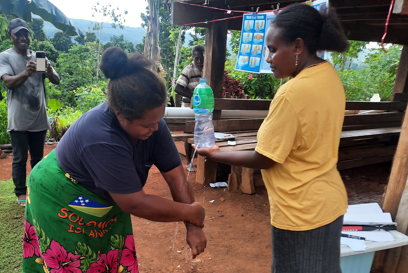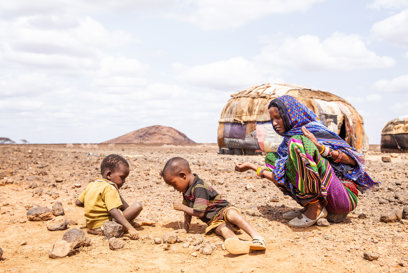Humanitarian emergency in Lebanon reaches crisis point
Caritas Australia, CEO Kirsty Robertson, makes an urgent appeal for the people of Lebanon, as fuel and food shortages disrupt the nation.
Lebanon has reached boiling point due to an enduring a series of crises that have been escalating over the past 18 months. Today, the population faces a dire humanitarian crisis, with the country rapidly running out of power, water, fuel, medicine and food.
The Lebanese economy has been in freefall since October 2019 which has seen hyperinflation drastically devalue the Lebanese Lira in what the World Bank says is potentially one of the three worst economic crises in the past 150 years.
People now pay 20 times more for basic goods than they did 18 months ago, while many are living on decreased salaries. Families are now unable to pay for housing, education, health care, transportation and food. Over one million Syrian and Palestinian refugees living in Lebanon are also at risk.
“The current situation is worse than the darkest years of the Lebanese war,” said Melville Fernandez, Caritas Australia’s Humanitarian Emergencies Manager.

Volunteers distribute aid in Beirut. Photo Caritas Lebanon
“There isn’t enough cash in the country, so people are forced to queue for hours to withdraw money, only to find out that the ATMs have run out of funds. Even if people can access funds, it’s next to impossible to buy fuel to run generators or medicine because the country is rapidly running out of these basic goods.”
“In an unfathomable turn of events, some of the country’s largest hospitals have announced that they will have to close because they can no longer afford the fuel to run their generators, which they rely on now that electricity is only available for two hours a day.”
“The public water supply and wastewater treatment systems are largely reliant on fuel, leaving millions of people without access to clean water. This is a serious public health risk for everybody in Lebanon.”
This all comes as the capital, Beirut, continues to rebuild after the port explosion on 4th of August 2020.
“Australia and Lebanon have a long and special relationship, with a large Lebanese population here. So many Australians were compelled to give their support after the Beirut blast, and now sadly, Lebanon is in even more need of support.”
As of July 2021, Caritas Lebanon has provided assistance to 361,788 individuals in Beirut and its suburbs.
THIS ASSISTANCE INCLUDES:
- 3,708 hygiene kits
- 7,982 food kits distributed to households.
- 245,828 hot meals have been distributed to those in need.
- 1,541 individuals were provided with psychological first aid
- 509 injured provided with medical first aid
- 72,764 medicines distributed to patients
- 7,710 medical consultations.
- 1,725 houses assessed for damage and 1,300 have been renovated
With your generous support, Caritas Australia is able to continue to support Caritas Lebanon with both its emergency and long-term response.

















